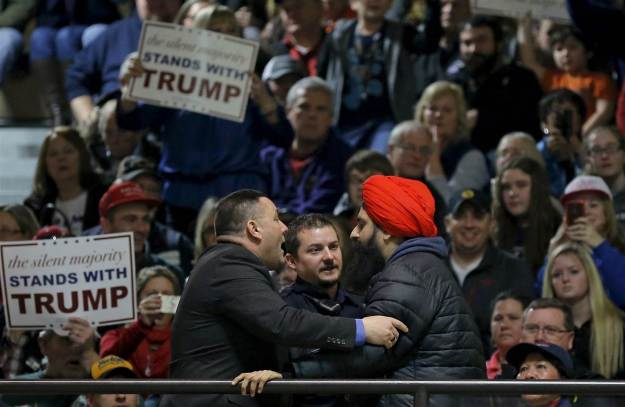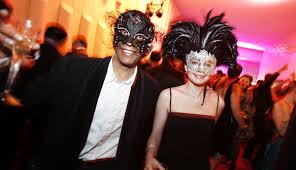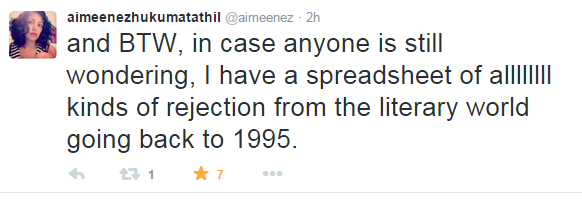
You may recall from my January post on this that one of the goals I’ve set for the year is to get 100 literary rejections. This was inspired by several friends who did it last year, and is a fiendishly clever mechanism for standing the usual submission dynamic on its head: Acceptances? Who needs ’em! I’m chasing rejections, and I’ll submit in whatever volume is necessary to get them!
In addition to being distracted by the fight against the forces of darkness for most of the year to date, I haven’t posted a lot on this due to some computer issues that prevented me from having all the stats I needed in one place for easy tracking. But that’s not your problem, and anyway, it’s all sorted out now. So, now that I have all the data together, how am I doing?
In terms of volume, I calculated going in that I’ll need to make 143 submissions in the year in order to get the desired 100 rejections. As of this weekend, I’m at 89 submissions. So that leaves 54 for about 3 1/2 months left, which is a quite doable 15 per month. On target!
That being said, there have been the following troubling failures:
- My poem “Hitting Bottom Sestina” was published in Blognostics in May.
- My poem “Thoughts on Viewing the Facade of a Vietnamese Restaurant, Post & Larkin” came out in Strange Poetry in July.
- My Poem “Emily Listens Critically to Diana Ross” was featured in the print and online edition of poems2go in September.
- My poem “Politics II (after W.B. Yeats)” will be in issue 3 of Zig Zag Lit Mag– release party this weekend!
- My poem “The Ideal Man” will be coming out in the Fall issue of Feel Good Weird.
Well, you can’t lose them all. I also had a few frightening near misses:
- I got to the finalist round of the Poetry Matters Project’s Spring Robinson/Mahogany Red Lit Prize. But was not chosen. Whew!
- Stirling Robyns Publishing didn’t chose my chapbook Visions: Fear & Hope / Humorous & Uncanny, but did have some very nice things to say about it, as well as suggestions about other places to try.
- Although Muse / A Journal passed on my essay “Smells Like Middle-aged Reverie”, they sent a personal note to say they enjoyed it and to encourage me to submit again. I had similar experiences last year with this essay- people love to almost publish it!
The good news is, despite these acceptances and almost-acceptances, I’ve had plenty of rejections! 44, to be precise. I’m not going to sugar-coat it, that leaves me with a pretty aggressive target of 16 rejections a month average for the next 3 1/2 months to hit 100. Still, I’m not one to quit.
I’ll update you again in late October about how my experiment in success with failure is going!


